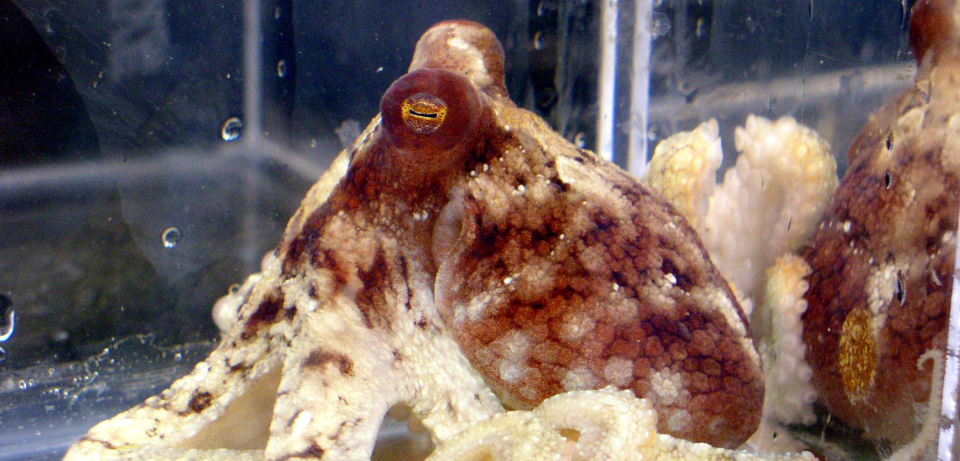Research in the Onthank Lab
 Research in
the Onthank lab focuses on how the physiology of cephalopods helps these
organisms survive in the environments they inhabit, and how this
influences their interactions with other organisms they encounter.
Occasionally these questions lead into decidedly ecological or
behavioral studies as well. Specific studies include:
Research in
the Onthank lab focuses on how the physiology of cephalopods helps these
organisms survive in the environments they inhabit, and how this
influences their interactions with other organisms they encounter.
Occasionally these questions lead into decidedly ecological or
behavioral studies as well. Specific studies include:Impacts of ocean acidification on octopus physiology
↪ Use of energy budgets to determine if lower marine pH resulting from increasing carbon dioxide have a negative impact on octopus global physiology
↪ Determine if lower pH will impair octopus ability to cope with low oxygen events
↪ Track changes in ventilatory efficiency of octopuses with changing pH
↪ This work has been funded by a grant from the M.J. Murdock Charitable Trust
Use of energy budgeting of octopuses to explore global physiological responses
↪ Differences in energy budgeting of the east Pacific red octopus, Octopus rubescens, on crustacean and bivalve diets, and how that may relate to preference of this species for crustacean prey.
↪ Changes in energy budgeting of Octopus rubescens in response to increased water temperature and lower pH.
Stable isotope analysis of cephalopod eye lenses to infer life history changes
↪ SI analysis of eye lenses of humboldt squid, Dosidicus gigas, that had invaded into US in order to infer origins.
↪ SI analysis of the eye lenses of a deep-sea octopus, Graneledone boreopacifica, found commonly near hydrothermal vents consumed prey from vents, or non-vent organisms.
↪ Determining if a symbiosis between a scallop and the sponge that grows on its shell is in part maintained by predation by giant Pacific octopuses, Enteroctopus dofleini, or east Pacific red octopuses, Octopus rubescens.
Lab Tools:
Onthank Lab Tools R Package:
I maintain an R package with a collection of useful commands for those working in my lab. The current code can be found on Github
For tutorials on how to install and use OTools, click here.
